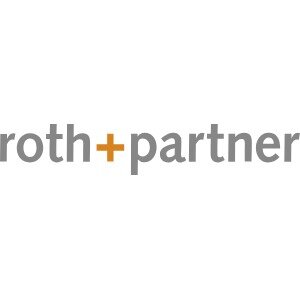Best Trusts Lawyers in Triesen
Share your needs with us, get contacted by law firms.
Free. Takes 2 min.
List of the best lawyers in Triesen, Liechtenstein
About Trusts Law in Triesen, Liechtenstein
Trusts in Triesen, Liechtenstein, are established as flexible legal entities designed to manage and protect assets. Originating from common law, the concept of a trust in Liechtenstein is integrated within its civil law system, offering a unique blend of both legal traditions. This makes trusts particularly attractive for estate planning, asset protection, and wealth management. Liechtenstein's trust law is comprehensive, providing robust protections, confidentiality, and favorable tax treatments, making it an appealing jurisdiction for both local and international clients.
Why You May Need a Lawyer
There are several common situations where legal assistance in trusts can be invaluable:
- Setting up a Trust: When establishing a trust, it's crucial to draft clear and legally sound documents that align with your intentions and comply with local regulations.
- Managing a Trust: Trust administration involves complex fiduciary responsibilities; a lawyer can provide guidance and ensure compliance with legal requirements.
- Disputes and Litigation: In cases of disputes between beneficiaries or other parties, legal representation is essential for a fair resolution.
- Modifying or Terminating a Trust: Changing the structure or dissolving a trust requires adherence to legal procedures, where a lawyer’s expertise can be crucial.
- Taxation and Compliance: Lawyers provide guidance on the tax implications of trusts and help ensure adherence to both local and international tax laws.
Local Laws Overview
Liechtenstein's laws governing trusts are outlined primarily in the Persons and Companies Act (PGR). Key aspects relevant to trusts include:
- Flexibility: The law allows a high degree of flexibility in terms of choosing the governing law of the trust and the domicile of trustees.
- Secrecy and Privacy: The country’s legal framework upholds strict confidentiality, protecting beneficiaries' privacy.
- Asset Protection: Trusts in Liechtenstein are known for providing strong protection against creditors and legal claims.
- Tax Benefits: Liechtenstein offers favorable tax regimes for trusts, often attracting international clients seeking tax efficiency.
- Registration Requirements: While trusts do not require registration, certain types of trusts may opt for voluntary registration for enhanced legal standing.
Frequently Asked Questions
What is the primary legislation governing trusts in Liechtenstein?
The Persons and Companies Act (PGR) is the key legislation governing trusts in Liechtenstein.
Can foreigners establish trusts in Triesen?
Yes, foreigners can establish trusts in Triesen, and Liechtenstein is popular among international clients due to its favorable trust laws.
Are trusts in Liechtenstein subjected to registration?
No mandatory registration is required, though voluntary registration can be pursued for certain advantages.
What are the tax implications of setting up a trust in Triesen?
Triesen offers favorable tax conditions for trusts, but it's essential to consult with a legal professional to understand specific tax obligations and benefits.
How are trusts structured in Liechtenstein?
Trusts in Liechtenstein can be structured with great flexibility regarding assets, beneficiaries, and governing law.
What is the role of a trustee in a Liechtenstein trust?
The trustee is responsible for managing the trust in accordance with the trust deed and local laws, acting in the best interest of the beneficiaries.
Can a trust own property in Liechtenstein?
Yes, trusts can own property and other assets, subject to compliance with local laws and regulations.
Are trusts confidential in Liechtenstein?
Yes, Liechtenstein maintains strict confidentiality regarding trust deeds and beneficiaries.
What happens if there is a dispute over a trust?
Disputes may be resolved through negotiations, mediation, or legal proceedings, often necessitating legal representation.
How can I terminate a trust in Triesen?
Terminating a trust must adhere to the terms of the trust deed and legal requirements, typically requiring legal advice to execute properly.
Additional Resources
If you need more information or assistance, consider reaching out to the following resources:
- Liechtenstein Chamber of Lawyers: Provides a directory of qualified lawyers specializing in trusts.
- Financial Market Authority Liechtenstein (FMA): Offers insights into the regulatory environment for trusts and other financial entities.
- Liechtenstein Institute: An academic institution offering research and publications on the legal system in Liechtenstein.
Next Steps
If you require legal assistance in trusts, consider the following steps:
- Identify Your Needs: Clearly define the purpose of your trust and any specific concerns or questions you have.
- Research and Consult: Seek a consultation with a lawyer who specializes in trusts in Liechtenstein to gain personalized advice.
- Prepare Documentation: Gather any relevant documents and information needed for your legal consultation or proceedings.
- Follow Legal Advice: Work closely with your legal advisor to ensure all actions are compliant with local laws and meet your intended objectives.
Lawzana helps you find the best lawyers and law firms in Triesen through a curated and pre-screened list of qualified legal professionals. Our platform offers rankings and detailed profiles of attorneys and law firms, allowing you to compare based on practice areas, including Trusts, experience, and client feedback.
Each profile includes a description of the firm's areas of practice, client reviews, team members and partners, year of establishment, spoken languages, office locations, contact information, social media presence, and any published articles or resources. Most firms on our platform speak English and are experienced in both local and international legal matters.
Get a quote from top-rated law firms in Triesen, Liechtenstein — quickly, securely, and without unnecessary hassle.
Disclaimer:
The information provided on this page is for general informational purposes only and does not constitute legal advice. While we strive to ensure the accuracy and relevance of the content, legal information may change over time, and interpretations of the law can vary. You should always consult with a qualified legal professional for advice specific to your situation.
We disclaim all liability for actions taken or not taken based on the content of this page. If you believe any information is incorrect or outdated, please contact us, and we will review and update it where appropriate.








